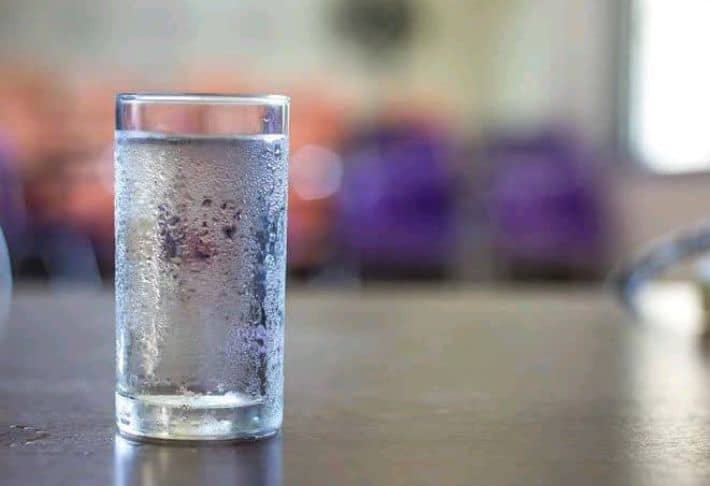For many Nigerians, drinking cold water, especially after a heavy meal, is non-negotiable as it feels refreshing and helps cool down the body.
However, what many people don’t realise is that drinking cold water after eating can actually harm your body in several ways.
While it’s not necessary to completely avoid cold water, understanding when and how to drink it can help you maintain better health.

Drinking cold water after a meal can negatively affect your body.
Here are a few reasons why this habit could be more harmful than you think:
Slowed Digestion: Drinking cold water right after eating can slow digestion.
Cold water can cause the fats in your food to harden, making them difficult to break down.
This can lead to bloating, indigestion, or a heavy feeling in your stomach.
In contrast, warm or room-temperature water helps digestion flow more smoothly and is gentler on your system.
Stomach Cramps and Discomfort: For some individuals, drinking cold water can cause stomach discomfort or cramps, especially after a meal.
When cold water enters your stomach, it shocks the system and causes your muscles to contract.
This can lead to an uncomfortable or painful tightness in the stomach, particularly for those with sensitive digestion or conditions like IBS (Irritable Bowel Syndrome).
Build-up of Mucus: Cold water can thicken mucus in your respiratory system.
Drinking it after a meal may make your body produce more mucus to balance the temperature.
This can leave you feeling congested or with a blocked nose, particularly for those who already suffer from colds, allergies, or respiratory problems.
Warm water, on the other hand, can help clear mucus and keep your system running smoothly.
Bloating and Discomfort: Drinking cold water can cause food to move slower through your digestive system, leading to bloating and discomfort.
Also Read: Few Tips to Reduce Holiday Anxiety and Enjoy Christmas Holiday
It also causes your body to use more energy to warm the water to body temperature, which can make you feel sluggish.
If you’re trying to avoid that heavy, bloated feeling after eating, it’s best to stick to room-temperature water.
Benefits of drinking room temperature water
Room temperature water is considered better than cold water for several reasons. It is easier to digest, as it doesn’t slow down digestion or cause stomach cramps like cold water can.
Additionally, room temperature water is less shocking to the system, as it doesn’t cause blood vessels to constrict or heart rate to increase.
Room temperature water is also more easily absorbed by the body, leading to better hydration. Cold water, on the other hand, may not be absorbed as easily.
Furthermore, drinking room temperature water can help prevent mucus buildup, which can lead to congestion and respiratory problems.
Drinking room temperature water is also more comfortable for the stomach, especially for people with sensitive stomachs or conditions like IBS. It is also better for dental health, as it can help prevent tooth sensitivity.
Additionally, room temperature water requires less energy from the body to warm it up to body temperature, which can help conserve energy.
Overall, room temperature water is a better choice than cold water due to its ease of digestion, comfort on the stomach, and ability to promote better hydration and overall health.

